Polyester is a synthetic fabric made from a variety of chemicals, including petrochemicals. It is often used in clothing because it is inexpensive and can be dyed any color. Polyester also has some unique properties, including being waterproof. But how true is this claim? In this article, we will take a closer look at polyester and determine whether or not it lives up to its reputation as a waterproof material.
Waterproof vs Water-Resistant Fabric
One of the most common questions about polyester is whether or not it is truly waterproof. To answer this question, we first need to understand the difference between waterproof and water-resistant fabric. Waterproof fabric is completely impermeable to water. This means that no water can penetrate the fabric, even under pressure. Water-resistant fabric, on the other hand, is only resistant to light moisture and cannot withstand heavy rains or prolonged exposure to water. [1]
What is Waterproof Fabric?
Polyester is often marketed as a waterproof fabric, but is it really? The answer to this question depends on the type of polyester fabric in question. There are two main types of polyester: woven and non-woven. Woven polyester is made from interlocking fibers that are tightly woven together. This type of fabric is typically used in garments such as jackets and pants. Non-woven polyester, on the other hand, is made from a web of fibers that are bonded together with chemicals or heat. This type of fabric is often used in things like sleeping bags and tents.
There are a few things to keep in mind when considering waterproof polyester for your next garment or gear purchase. First, remember that waterproof does not mean breathable. This means that while water will not be able to penetrate the fabric, sweat and other moisture will be trapped inside. If you are looking for a fabric that is both waterproof and breathable, you will need to look for a different material such as Gore-Tex or eVent. Secondly, remember that even waterproof fabrics have their limits. Heavy rains, prolonged exposure to water, and high-pressure water activities such as whitewater rafting can all cause waterproof fabrics to fail. If you are planning on being in or around water for an extended period of time, it is best to err on the side of caution and choose a water-resistant fabric instead. [2]
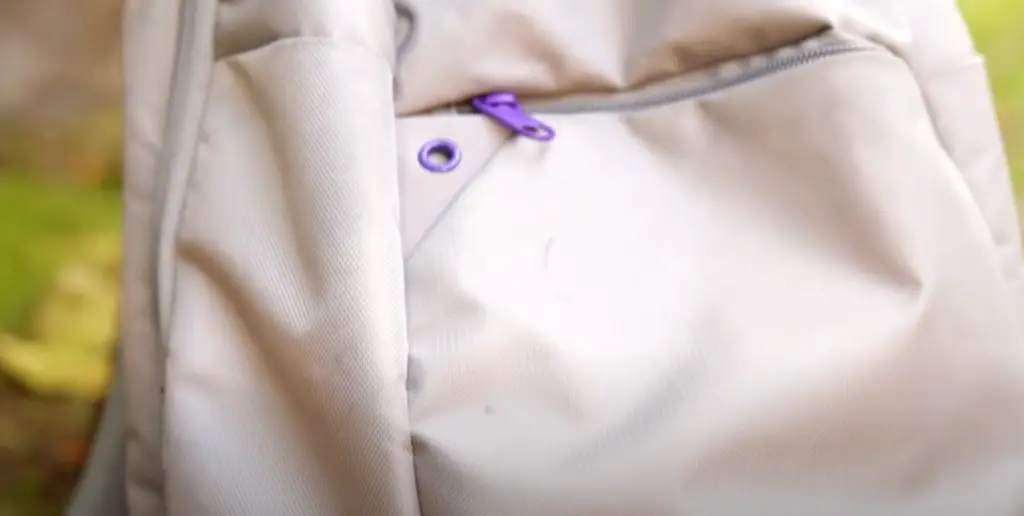
What is Water-Resistant Fabric?
Now that we have answered the question of whether or not polyester is waterproof, let’s take a look at water-resistant fabric. As we mentioned before, water-resistant fabric is only resistant to light moisture and cannot withstand heavy rains or prolonged exposure to water. Water-resistant fabric is made from a variety of materials, including polyester. Polyester is often used in water-resistant fabrics because it is inexpensive and has a variety of properties that make it ideal for this purpose.
One of the most important properties of water-resistant fabric is its ability to repel water. This means that when water comes into contact with the fabric, it will bead up and roll off instead of soaking into the fabric. Repel technology is often used in water-resistant fabrics to create this effect. Another important property of water-resistant fabric is its ability to dry quickly. This is important because it helps to prevent the fabric from becoming saturated with water, which can lead to problems such as mildew and bacteria growth.
There are a few things to keep in mind when choosing a water-resistant fabric for your next garment or gear purchase. First, remember that not all water-resistant fabrics are created equal. Some fabrics may only be resistant to light moisture while others can withstand heavy rains and prolonged exposure to water. It is important to choose a fabric that will meet your needs based on the activities you plan on doing. [3]
Is Polyester Fabric Waterproof?
If you’re like most people, you probably think of polyester as a common fabric material. It’s often used in clothing, upholstery, and other textiles. But what about its waterproofing properties?
So, what about its waterproofing ability? Polyester is technically water resistant, but not waterproof. That means it will shed light rain or snow, but won’t stand up to heavy rains or prolonged exposure to water. If you’re looking for a waterproof fabric, you’ll need to look elsewhere.
But polyester’s water resistance is still a valuable property. It means that garments made from polyester will be less likely to absorb moisture, making them more comfortable to wear in humid conditions. And if you do get caught in the rain, your polyester clothing will dry more quickly than cotton or other natural fabrics. [4]
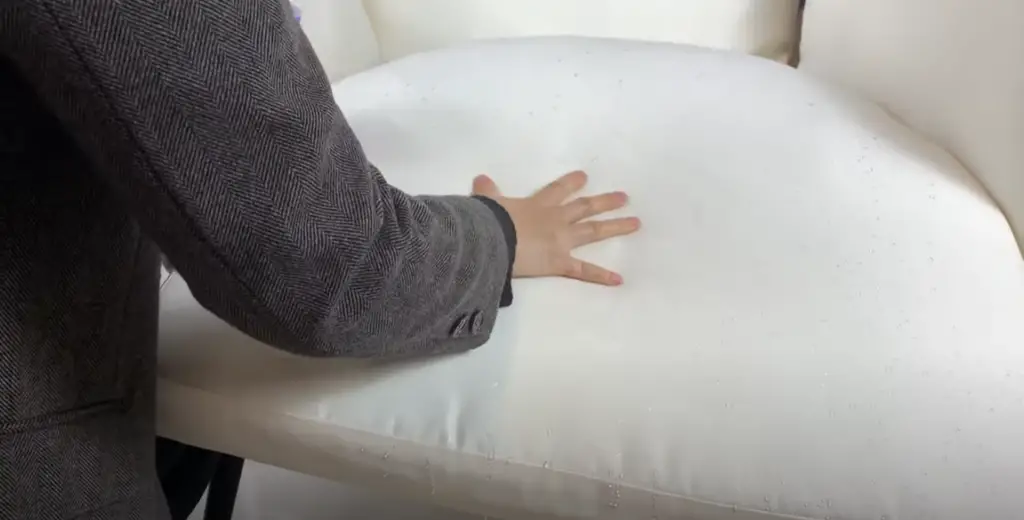
Does Polyester Absorb Water?
Polyester is a hydrophobic fabric, meaning it does not absorb water well. In fact, polyester repels water, which is part of what makes it so effective as a waterproof material. When water hits polyester fabric, it forms small beads that sit on the surface of the fabric rather than being absorbed. This gives polyester its characteristic ‘shiny’ appearance when wet.
So, if you’re looking for a fabric that won’t absorb water or show water stains, polyester is a good choice. However, there are some downsides to this property of polyester. Because it doesn’t absorb water well, sweat and other body fluids will also sit on the surface of the fabric where they can be seen more easily. This can be a problem in hot weather or during strenuous activity when you’re likely to sweat more. [5]
Polyester is also not as breathable as some other fabrics, which means it doesn’t allow air and moisture to pass through it as easily. This can make polyester fabrics feel hot and sticky against your skin, especially in warm weather. If you’re looking for a fabric that will help keep you cool and dry, polyester is probably not the best choice.
Overall, polyester’s waterproof properties make it a good choice for outerwear and rain gear. However, if you’re looking for a fabric that’s comfortable to wear in warm weather or during exercise, you might want to choose something else.
Popular Uses of Water-Resistant Polyester Fabric
Outdoor gear: Polyester is a popular choice for outdoor clothing and gear because it’s so effective at repelling water. Jackets, tents, and sleeping bags are all common items made from polyester fabric.
Water-resistant clothing: Many types of water-resistant clothing are made from polyester fabric. This includes raincoats, ski pants, and windbreakers.
Shower curtains: Shower curtains are often made from polyester fabric because it repels water well and doesn’t mildew easily.
Furniture: Some types of outdoor furniture are made from polyester fabric because it’s resistant to moisture and won’t fade in the sun.
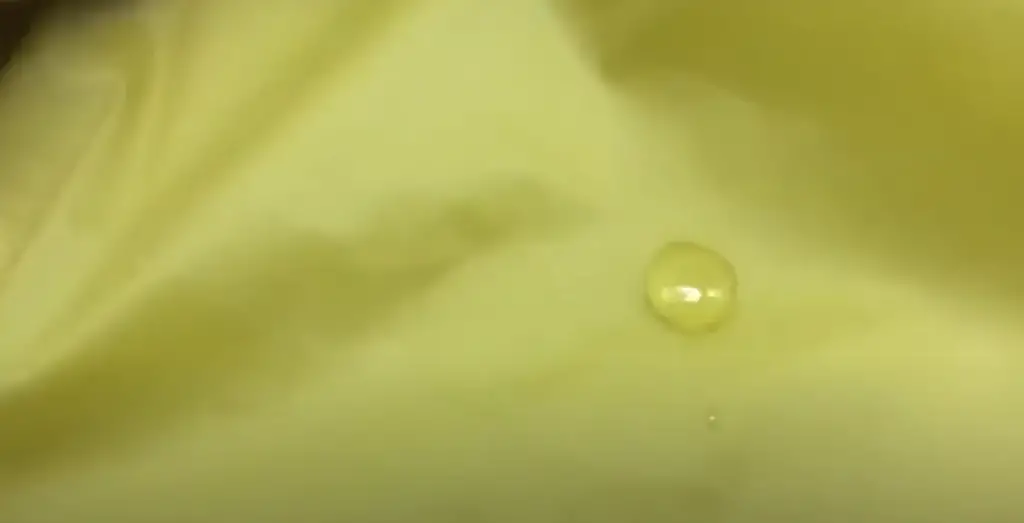
Is Polyester Good for Rain?
The simple answer is yes, polyester is good for rain. This is because polyester is a synthetic fabric, which means it is made from man-made materials. One of the benefits of synthetic fabrics is that they are often more durable than natural fabrics like cotton. This means that polyester will usually hold up better in wet weather conditions than other types of fabric.
However, it’s important to note that not all polyester fabrics are created equal. Some types of polyester may be more waterproof than others. For example, some types of polyester are treated with a waterproof coating that helps to repel water. Other types of polyester may not have this treatment, which means they will absorb water more easily and may not be as effective in wet weather conditions.
In general, polyester is a good choice for rainwear because it is durable and waterproof. However, there are some things to keep in mind when choosing a polyester fabric for your rainwear. Make sure to consider the weight, breathability, and price of the fabric before making your final decision.
How to Make Polyester Fabric Waterproof
If you have a piece of polyester fabric that isn’t waterproof, there are a few things you can do to make it more resistant to water. One option is to treat the fabric with a waterproofing spray. These sprays help to repel water and can be applied to both new and old fabrics.
Another option is to add a waterproof coating to the fabric. This can be done at home with a simple DIY kit or by taking the fabric to a professional. This process usually involves adding a layer of clear plastic or rubber over the surface of the fabric. This will make the fabric more resistant to water but may also make it less breathable.
Making polyester waterproof is relatively easy and can be done with either spray-on or coating treatments. However, it’s important to keep in mind that these treatments may make the fabric less breathable. If you’re using the fabric for clothing, be sure to choose a treatment that won’t make you too hot and sweaty in warm weather conditions.
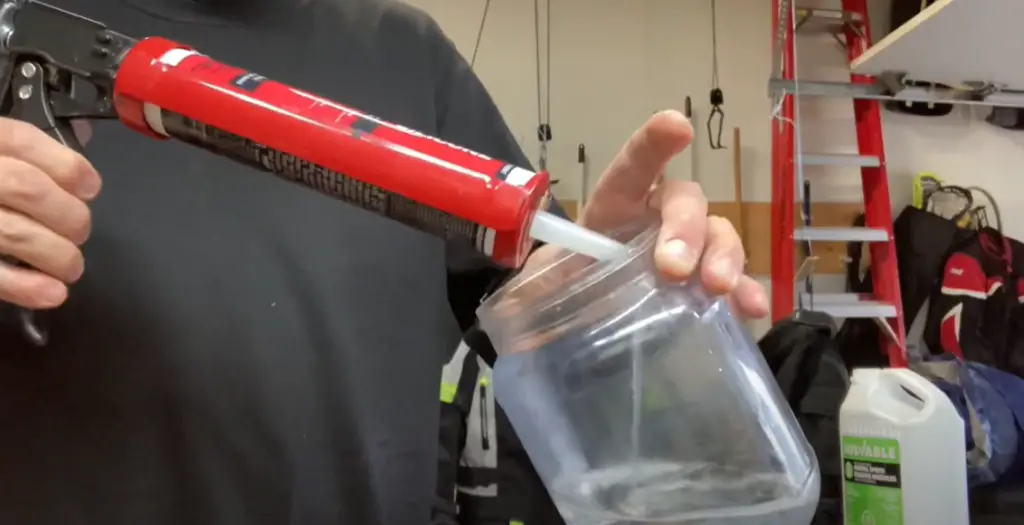
Denier
One of the most important things to consider when choosing a waterproof polyester fabric is the denier. The denier is a measure of the thickness of the fabric and is usually given as a number followed by “D”. For example, a 200D fabric is thicker than a 150D fabric.
Waterproof polyester fabrics are available in a wide range of deniers, so you should be able to find one that’s perfect for your needs. Just be sure to consider the breathability and weight of the fabric before making your final decision. [6]
Coating
Polyester is often coated with other materials to make it waterproof. A common coating is polyurethane, which is a type of plastic. Polyurethane coatings can make polyester fabric water-resistant, but not waterproof. The coating will eventually wear off with repeated washing and exposure to the elements. Other types of coatings may be used as well, such as wax or silicone. These coatings can make polyester more waterproof, but they may also change the feel and breathability of the fabric.
To find out if your polyester garment is waterproof, look for a label that says “waterproof” or “water-resistant.” If there’s no label, you can test the fabric by holding it up to a light. If you can see through it, the fabric is probably not waterproof. Another way to test the fabric is to pour a small amount of water on it. If the water beads up and rolls off, the fabric is water-resistant. If the water soaks into the fabric, it’s not waterproof.
Types of Waterproof Polyester
There are two main types of waterproof polyester: laminated and coated. Laminated fabrics have a thin layer of plastic or another material bonded to the surface of the fabric. This creates a barrier that is impermeable to water. Coated fabrics have a chemical treatment that makes them resistant to water. The coating can eventually wear off with repeated washing and exposure to the elements.
Laminated fabrics are more expensive than coated fabrics, but they’re also more durable and longer-lasting. If you need a waterproof fabric that will stand up to extended use, laminated polyester is the way to go. Coated fabrics are less expensive and may be a good choice for shorter-term use or for garments that won’t see much wear and tear.
FAQ
Which is more waterproof polyester or nylon?
There are a few different types of polyester, and not all of them are waterproof. The most common type of polyester is PBT (polybutylene terephthalate), which is usually used in sportswear because it’s lightweight and quick-drying. However, PBT is only water-resistant, not waterproof.
Nylon, on the other hand, is a fully waterproof fabric. It’s often used in outdoor gear like jackets and tents because it can withstand harsh weather conditions. So if you’re looking for a fabric that’s guaranteed to keep you dry, nylon is your best bet.
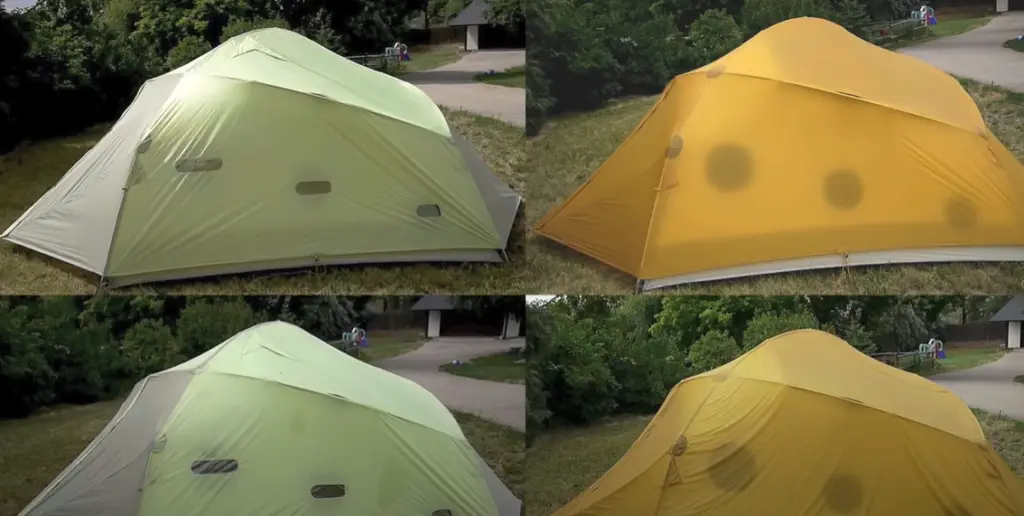
What is the best fabric for a raincoat?
Again, this depends on your needs. If you’re looking for a lightweight raincoat that you can pack into your suitcase, polyester is a good option. But if you need a heavy-duty raincoat to keep you dry in a storm, nylon is the way to go.
At the end of the day, it’s up to you to decide which fabric is best for your needs. If you need a waterproof fabric, nylon is your best bet. But if you’re looking for a lightweight and quick-drying fabric, polyester is a good choice. Whichever way you go, make sure to do your research so you know what you’re getting into!
Is polyester comfortable to wear?
This is a matter of personal preference. Some people find polyester to be very comfortable, while others find it to be scratchy and irritating. If you have sensitive skin, you may want to steer clear of polyester. But if you don’t mind the fabric, it can be a great option for sportswear and activewear.
Is PEVA the same as polyester?
PEVA (polyethylene vinyl acetate) is a type of plastic that’s sometimes used in place of polyester. It’s cheaper to produce, and it’s also recyclable. However, PEVA is not as durable as polyester, so it’s not often used in clothing. [7]
Useful Video: What is more waterproof nylon or polyester?
Conclusion
Polyester is a synthetic fabric such as nylon and rayon. It has many qualities, including being waterproof. While it isn’t the most breathable material, it does have some water-resistant properties that make it a good choice for certain applications. When cared for properly, polyester can last a long time and hold up well to wear and tear. Thanks for following along on our journey of discovering all there is to know about polyester!
References:
- https://www.hzo.com/blog/waterresistant-waterrepellent-waterproof-whats-difference/
- https://www.wise-geek.com/what-is-waterproof-fabric.htm
- https://fashinza.com/textile/tips-for-fashion-brands/waterproof-vs-water-resistant-fabric-know-the-difference/
- https://news.augustasportswear.com/is-polyester-waterproof/
- https://www.innovationintextiles.com/polyester-fabric-offers-water-absorption-and-oil-repellency/
- https://www.aboutmechanics.com/what-is-a-denier.htm
- https://slipxsolutions.com/shower-liner-differences/

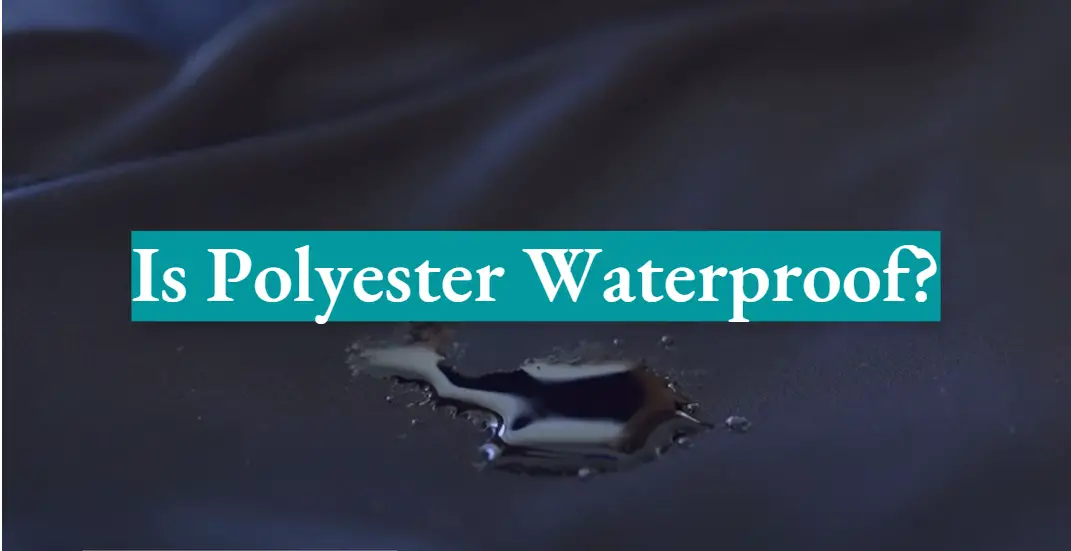
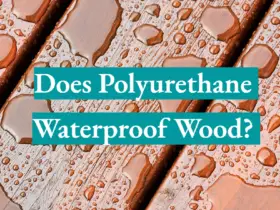
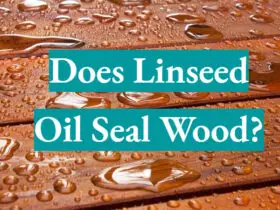
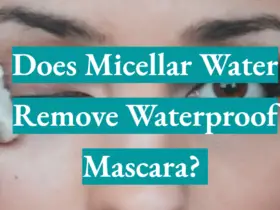
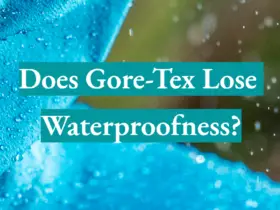
Leave a Reply